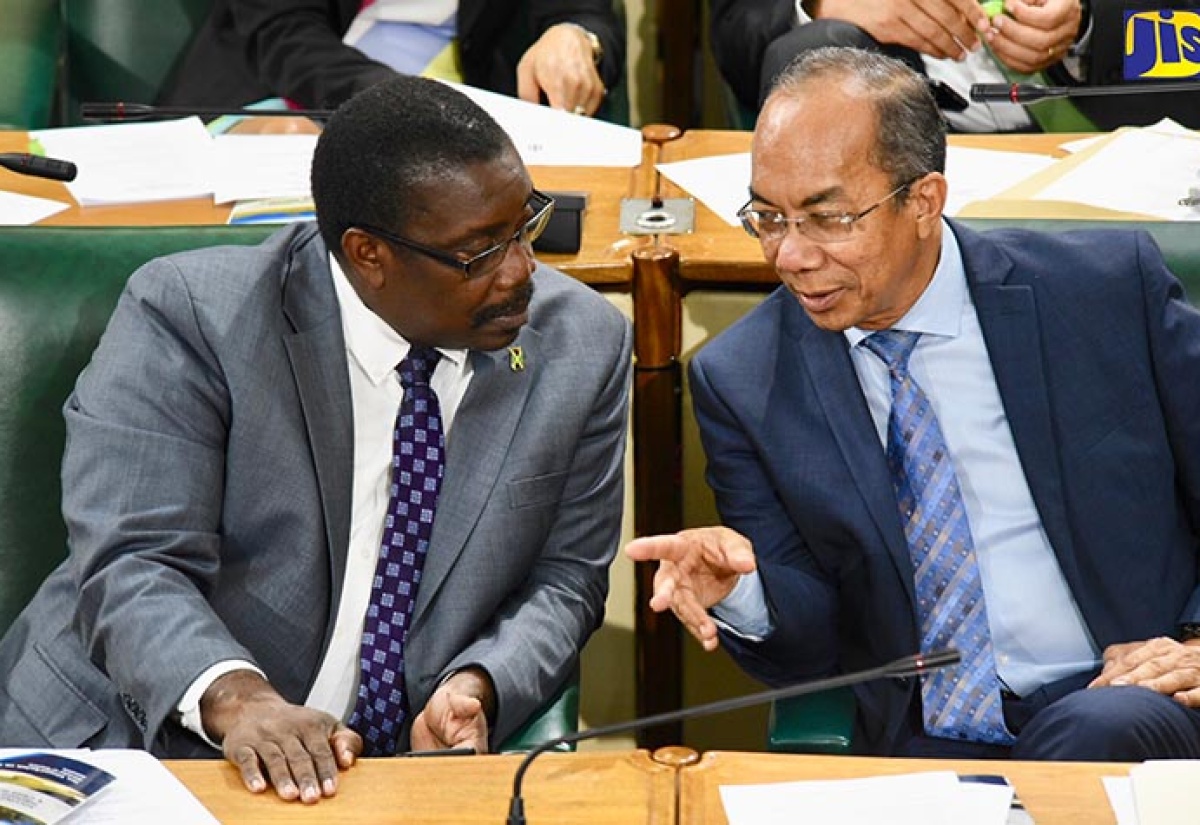House Passes Bill to Manage Ballast Water Carried By Ships
By: , July 12, 2018The Key Point:
The Facts
- The legislation seeks to implement measures to prevent ships entering Jamaica’s waters from introducing foreign aquatic species and diseases into the country.
- In piloting the Bill, Minister of Transport and Mining, Hon. Robert Montague, said the Bill is in keeping with commitments under the Ballast Water Management Convention, of which Jamaica is a signatory.
The Full Story
The House of Representatives on Tuesday (July 10) passed the Ballast Water Management Bill, which is aimed at protecting Jamaica’s marine environment.
The legislation seeks to implement measures to prevent ships entering Jamaica’s waters from introducing foreign aquatic species and diseases into the country.
In piloting the Bill, Minister of Transport and Mining, Hon. Robert Montague, said the Bill is in keeping with commitments under the Ballast Water Management Convention, of which Jamaica is a signatory.
He explained that the International Maritime Organization (IMO) Convention, adopted in 2004, “provides a global legal framework for the regulation and management of ships’ ballast water and the sediments that remain in the tanks of the vessels after the ballast water has been discharged”.
Ballast water is water carried in ships’ ballast tanks to improve stability, balance and trim. It is taken up or discharged when cargo is unloaded or loaded, or when a ship needs extra stability in foul weather. When ships take on ballast water, plants and animals that live in the ocean are also picked up.
Minister Montague noted that approximately 10 billion tonnes of ballast water are transferred globally on an annual basis, and approximately 10,000 species, including invasive aquatic species, were carried each day in the ballast tanks of ships.
“The transfer of invasive aquatic species in the ballast has contributed to the collapse of fisheries, the increased risk to the spread of cholera and shellfish poisoning in humans,” he noted.
“In Jamaica, the introduction of Asian green mussels found in the Kingston Harbour has been identified by the University of the West Indies as having been introduced into Jamaican waters via ballast water,” he added.
Mr. Montague said the country gets approximately 2,400 ship calls per year, including vessels exporting bulk cargo, such as bauxite and alumina, which discharge their ballast water prior to the loading operation.
“Jamaica is, therefore, at risk of having invasive aquatic species being introduced into our maritime environment as well as pathogens such as cholera being introduced into the country,” the Minister pointed out.
He noted that the activities of the large foreign flagged vessels currently transiting the country’s territorial waters due to the widening of the Panama Canal put the country at risk, so too the dredging of the Kingston Transhipment Terminal, and the recent opening of the bauxite plant in Nain.
The legislation will regulate how ships discard their ballast water and will also ensure compliance with international standards. It is to be administered by the Maritime Authority of Jamaica.
“Ships are required to carry on board a ballast water management plan and a ballast water record book. Additionally, based on their date of construction and the size of their ballast water tanks, ships are required to exchange their ballast water in accordance with the legislation or install ballast water treatment systems, which will prevent, reduce or eliminate invasive species and pathogens,” Mr. Montague explained.
Failure to comply with the legislation could result in fines of up to $30 million.
For his part, Opposition Spokesperson on Transport and Works, Mikael Phillips, welcomed the legislation.


